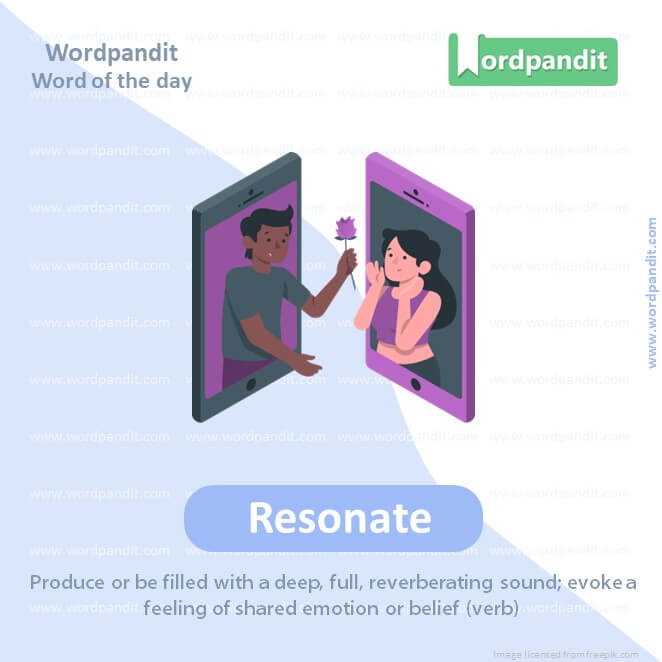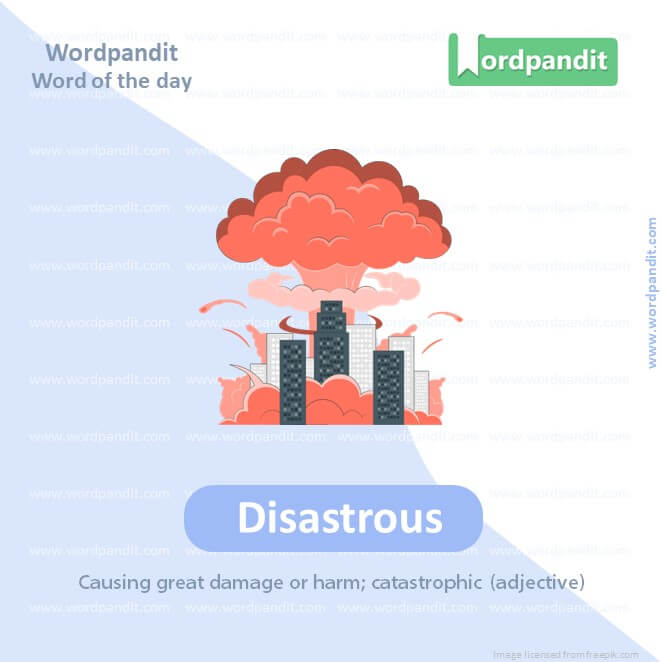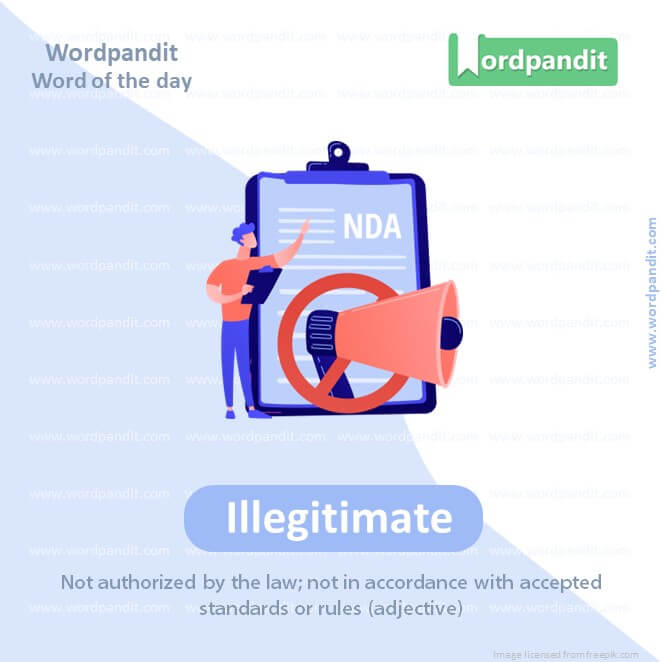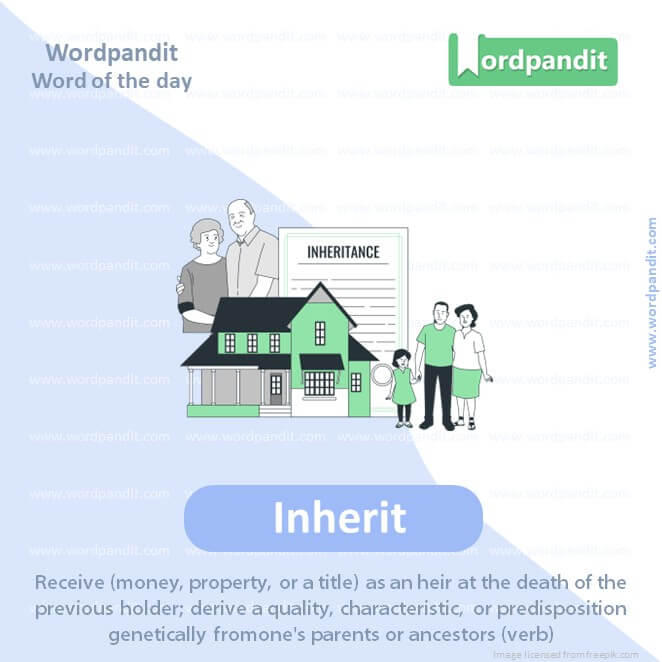Daily Vocabulary Words: List of Daily Used Words in Leading International Newspapers
Hi there. Welcome to this special section @ Wordpandit.
Our endeavour here is very simple: to highlight important daily vocabulary words, which you would come across in leading newspapers in the country. We have included the following newspapers in our selection:
• The New York Times
• The Washington Post
• Scientific American
• BBC
• The Guardian
• Psychology Today
• Wall Street Journal
• The Economist
We are putting in extensive work for developing your vocabulary. All you have got to do is be regular with this section and check out this post on a daily basis. This is your repository of words that are commonly used and essentially, we are posting a list of daily used words. Hence, this has significant practical application as it teaches you words that are used commonly in leading publications mentioned above.
Visit the website daily to learn words from leading international newspapers.

WORD-1: Threshold
CONTEXT: Today we may possibly be on the threshold of another of these rare change-making elections. Scepticism about that prospect is sensible.
SOURCE: Guardian
EXPLANATORY PARAGRAPH: Threshold is like the start of something new or the edge of a door that you step over to go into a room.
MEANING: The starting point for a new state or experience; the entrance or a doorway (noun).
PRONUNCIATION: THRESH-hold
SYNONYMS: Beginning, Start, Entrance, Doorway, Brink.
USAGE EXAMPLES:
1. He stood on the threshold of the house.
2. They were on the threshold of a great discovery.
3. The company is at the threshold of success.
4. She felt excited crossing the threshold into her new career.

WORD-2: Resonate
CONTEXT: There is, though, one more pivotal general election that ought to resonate today.
SOURCE: Guardian
EXPLANATORY PARAGRAPH: Resonate is like when a sound makes a deep, clear, lasting noise, or when something is really meaningful or important to you.
MEANING: Produce or be filled with a deep, full, reverberating sound; evoke a feeling of shared emotion or belief (verb).
PRONUNCIATION: REZ-uh-nate
SYNONYMS: Echo, Reverberate, Ring, Strike a chord, Vibrate.
USAGE EXAMPLES:
1. Her speech resonated with the audience.
2. The music resonated through the hall.
3. The idea resonated with many people.
4. His words resonated in their hearts.
WORD-3: Protectionist
CONTEXT: His successor, Stanley Baldwin, wanted a policy U-turn in favour of protectionist tariffs on imports, so called another election to win a mandate.
SOURCE: Guardian
EXPLANATORY PARAGRAPH: Protectionist is like when a country tries to protect its own businesses and products by making rules about what can be bought or sold from other countries.
MEANING: Relating to or supporting the policy of protecting domestic industries from foreign competition by imposing import duties or restrictions (adjective).
PRONUNCIATION: pro-TEK-shuh-nist
SYNONYMS: Defensive, Preservative, Restrictive, Conservative, Shielding.
USAGE EXAMPLES:
1. The government adopted protectionist policies.
2. He criticized the protectionist measures of the country.
3. Protectionist trade practices have been debated.
4. The industry benefited from protectionist laws.

WORD-4: Disastrous
CONTEXT: The result was disastrous for the Tories. They were reduced to 258 MPs, with Labour now on 191 and the divided Liberals 158. Only a coalition or a minority government was now viable.
SOURCE: Guardian
EXPLANATORY PARAGRAPH: Disastrous is when something goes really wrong and causes a lot of problems, like knocking over a big tower of blocks.
MEANING: Causing great damage or harm; catastrophic (adjective).
PRONUNCIATION: di-ZAS-truhs
SYNONYMS: Catastrophic, Destructive, Devastating, Ruinous, Calamitous.
USAGE EXAMPLES:
1. The storm had disastrous effects.
2. The decision proved to be disastrous.
3. The project ended in a disastrous failure.
4. Their plans led to disastrous consequences.

WORD-5: Illegitimate
CONTEXT: The new prime minister was the illegitimate son of a Moray ploughman.
SOURCE: Guardian
EXPLANATORY PARAGRAPH: Illegitimate is when something is not allowed by the rules or laws, like playing a game in a way that’s not fair.
MEANING: Not authorized by the law; not in accordance with accepted standards or rules (adjective).
PRONUNCIATION: il-eh-JIT-uh-mit
SYNONYMS: Illegal, Unlawful, Unauthorized, Illicit, Invalid.
USAGE EXAMPLES:
1. The court declared the action illegitimate.
2. He was an illegitimate heir to the throne.
3. The company engaged in illegitimate practices.
4. They questioned the legitimacy of the document.
WORD-6: Inevitably
CONTEXT: the mere months that the first Labour government inevitably and rightly expected before it was brought down in October 1924.
SOURCE: Guardian
EXPLANATORY PARAGRAPH: Inevitably is when something is sure to happen, like bedtime comes after a day of playing.
MEANING: As is certain to happen; unavoidably (adverb).
PRONUNCIATION: in-EV-it-uh-blee
SYNONYMS: Unavoidably, Certainly, Unquestionably, Inescapably, Surely.
USAGE EXAMPLES:
1. The discussion inevitably led to an argument.
2. Change is inevitably a part of life.
3. He inevitably arrived late to the meeting.
4. Inevitably, the truth came out.

WORD-7: Inherit
CONTEXT: Starmer would also inherit a British state that is more comfortable with the rule of law and with checks and balances than the UK of a century ago.
SOURCE: Guardian
EXPLANATORY PARAGRAPH: Inherit is like getting something from your family, like a toy or a trait, after someone else had it before you.
MEANING: Receive (money, property, or a title) as an heir at the death of the previous holder; derive a quality, characteristic, or predisposition genetically from one’s parents or ancestors (verb).
PRONUNCIATION: in-HER-it
SYNONYMS: Receive, Acquire, Obtain, Come into, Be endowed with.
USAGE EXAMPLES:
1. She will inherit the house from her grandmother.
2. He inherited his father’s business.
3. They are likely to inherit some of these traits.
4. The new king inherited the throne.
WORD-8: Austerity
CONTEXT: Labour in 2024 would take power amid government austerity and in the wake of a pandemic.
SOURCE: Guardian
EXPLANATORY PARAGRAPH: Austerity is like when you need to be very careful with your things or money, maybe like saving your allowance instead of spending it all.
MEANING: Sternness or severity of manner or attitude; extreme plainness and simplicity of style or appearance (noun).
PRONUNCIATION: aw-STER-i-tee
SYNONYMS: Severity, Strictness, Frugality, Simplicity, Asceticism.
USAGE EXAMPLES:
1. The government implemented austerity measures.
2. They lived in an age of austerity.
3. The austerity of the building was striking.
4. Austerity was evident in her lifestyle.
WORD-9: Centenary
CONTEXT: Labour’s centenary as a governing party is nevertheless an anniversary to be taken seriously by all who will follow the fortunes of a possible Starmer government.
SOURCE: Guardian
EXPLANATORY PARAGRAPH: Centenary is a special birthday for something that’s been around for 100 years, like a really old building or a big celebration.
MEANING: The 100th anniversary of a significant event; a centennial (noun).
PRONUNCIATION: sen-TEN-uh-ree
SYNONYMS: Centennial, Hundredth anniversary, Century celebration, 100-year anniversary, Centurial.
USAGE EXAMPLES:
1. The town celebrated its centenary.
2. A special coin was minted for the centenary.
3. The university’s centenary is next year.
4. The centenary of the battle was commemorated.
WORD-10: Succinctness
CONTEXT. Expect a clutch of books, including Peter Clark’s The Men of 1924, Jon Cruddas’s A Century of Labour and David Torrance’s The Wild Men, all written with wit and commendable succinctness and most featuring photos of the now all but forgotten Labour figures who first trod the corridors of power: Arthur Henderson, JR Clynes, Jimmy Thomas, Philip Snowden and MacDonald himself.
SOURCE: Guardian
EXPLANATORY PARAGRAPH: Succinctness is when you say or write something in a clear, short way without using too many words, like explaining a game quickly.
MEANING: The quality of expressing something clearly and concisely; brevity (noun).
PRONUNCIATION: suh-SINGKT-ness
SYNONYMS: Brevity, Conciseness, Pithiness, Compactness, Laconism.
USAGE EXAMPLES:
1. He was admired for his succinctness in meetings.
2. The report was notable for its succinctness.
3. She delivered her message with great succinctness.
4. The teacher encouraged succinctness in essays.
Vocabulary Today
In the dynamically evolving spectrum of language, staying updated with ‘vocabulary today’ is an integral part of mastering a language. These topical, contemporary words breathe vitality into our communication, bridging the gap between language learning and language living. But, how can we effectively learn ‘vocabulary today’?
Grasping ‘vocabulary today’ begins with exposure to contemporary contents. Engaging with current publications, social media platforms, movies, music, podcasts, and digital content can dive you into the real-world usage of ‘vocabulary today’. These platforms imbibe the vocabulary of the day, reflecting the evolution in language.
To consolidate the learning of ‘vocabulary today’, utilize memory-enhancing tools. Flashcards, language learning apps, or memory-enhancement software can make your study session an engaging venture and enhance word retention.
However, the secret sauce to learning ‘vocabulary today’ is practice. Inculcating these words in your regular dialogues, written correspondences, or social media posts will reinforce your grasp over these words. It brings you closer to ‘vocabulary today’, enhancing your language adaptability and fluency.
Better understanding of ‘vocabulary today’ can be achieved by staying connected with diverse social platforms which bring words from across locations and cultures, expanding your linguistic understanding. Also, participating in language forums, discussion groups, or language exchange platforms provides great insights into ‘vocabulary today’.
In the final analysis, staying abreast with ‘vocabulary today’ is an exciting quest that requires consistent exposure, active practice, and social engagement. As you embrace this journey, you will find your language proficiency growing with every new word, enabling you to step into the dynamic world of contemporary language with confidence and mastery. Remember, ‘vocabulary today’ is not static, it flows like a river, always fresh, always changing, and always enriching!











